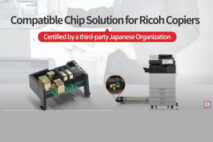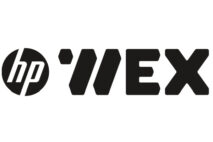Over the past couple of weeks, the European Toner and Inkjet Remanufacturers Association (ETIRA), Europe’s largest trade group for third-party supplies vendors, has gone on the offensive in a blistering string of anti-OEM press releases. ETIRA has taken aim at hardware manufacturers in general—and HP Inc. in particular—accusing OEMs of preventing growth within Europe’s remanufactured cartridge industry. The association also faults the European Commission for its failure to effectively regulate the industry and is demanding action.
The opening salvo in the campaign came on July 29 when ETIRA issued a press release blasting HP for reasons that are not well defined. Without providing many details, ETIRA chided the OEM for initiating a firmware update that may stop third-party cartridges from working in a range of HP inkjet machines. Next, on July 31, ETIRA published an open letter to the European Commission stressing it take “fast action” and impose a “regulatory European framework facilitating cartridge reuse.” On August 5, the third-party supplies trade group reiterated its demand for fast action in its latest press release.
We were surprised by some of the allegations ETIRA made in its press releases. After giving each of the three a close read, we question the veracity of some of the group’s claims. While each of the announcements put out by ETIRA contains a kernel of truth, certain claims were inaccurate. ETIRA’s press releases employed a sizable amount of FUD—fear, uncertainty, and doubt—to create a false narrative that describes unscrupulous OEMs bilking consumers in Europe and destroying the environment. ETIRA even made some surprising accusations about the very industry it represents, asserting that the print industry as a whole has a “devasting impact” on the environment.
Maybe? Maybe Not?
In its first press release, ETIRA urged HP to “change course and take [the] ‘path of sustainability.’” Javier Martinez, the group’s president, repeatedly criticized the OEM for harming consumers and engaging in practices that harm the environment. The absence of detail is unfortunate because rather than offering the European commissioners an accurate representation of current market conditions that they could act on, ETIRA and Mr. Martinez appear to be doing little more than grumbling over what might well be non-issues.
According to ETIRA, HP initiated a firmware update in July. The group identified the update as 2025A/2021B and says it affects various inkjet machines, including the HP OfficeJet 5220, 5255, 5230, and 5232; HP ENVY 5020 and 5032; and HP DeskJet 2621. These machines employ inkjet cartridges with integrated print heads. ETIRA explained, “In the past, similar updates have blocked out reused HP cartridges across the globe,” and went on to say it hopes “to avoid a similar situation again.”
ETIRA did not, however, explain whether the update had indeed locked out any aftermarket cartridges, reveal what type of cartridges were impacted (remanufactured or new-build or both), specify whether those non-OEM cartridges that were locked out used third-party chips, or provide other details. Although the trade association suggested that HP’s July firmware update had the possibility of rendering third-party cartridges inoperable because past updates had, it didn’t say definitively whether the 2025A/2021B update actually caused any problems. If there were problems, ETIRA did not indicate the scale of the issue.
Mr. Martinez commented about the firmware update in the press release, but his quotes were similarly devoid of detail. While he said, “It is quite clear that HP printer owners using reuse cartridges who update the firmware, may find that their cartridges no longer work, and this is down to HP,” the use of the word may clouds the issue.
Because it raised concerns, we feel it is incumbent on ETIRA and Mr. Martinez to inform the industry about the details. Why rely on vagaries when facts would be much more compelling? Moreover, the group should offer insight into the scale of the problem—if, indeed, there is a problem. And why did ETIRA decide to single out HP for criticism? We are aware of a number of OEMs that have initiated firmware updates that have resulted in the failure of third-party consumables.
Moreover, it is possible that HP’s latest firmware upgrade was largely a non-event for at least certain non-OEM cartridge makers. The third-party chip manufacturer Hangzhou Chipjet Technology Co., issued a statement saying that HP’s 2025A/2021B firmware upgrade had not adversely impacted its chipsets (see “Chipjet Says Its HP 63/302 and 65/304 Replacement Chips Are Unaffected by Recent HP Firmware Updates”).
Other FUD
At one point in the press release, Mr. Martinez became particularly aggressive in his attack of HP and seemed to threaten the company with legal action. “Our members will hold HP responsible and liable for all damages occurring from this update,” he says. “Under the new EU Circular Economy Action plan mandate and existing waste regulations, HP may find that its actions are considered an environmental offence,” he cautions HP. To threaten HP or any other OEM with legal action seems out of keeping for ETIRA. We think it would be more prudent for the trade group to appear as an advocate for the remanufactured cartridge industry rather than an adversary of hardware manufacturers. Like it or not, ETIRA’s members depend on OEMs for their livelihoods.
In addition to warning HP about its potential legal culpability, Mr. Martinez went on to discuss the dangers of disposing of cartridges full—or partially full—of ink. He claimed cartridges that are not completely exhausted increase “waste treatment risks, as treatment plants are designed to process empty cartridges.” This is the first time we’ve heard the disposal of partially empty ink cartridges is risky, and we believe the statement is an exaggeration. What are the risks?
Our understanding is the cartridges used in the machines noted by ETIRA contain only small amounts of inks made primarily of water. For example, according to the HP website, the high-yield OEM black cartridge (HP 63XL) used in the OfficeJet units listed above contains 8.5 ml of ink, which is equivalent to just under two teaspoons. Surely, the small amounts of ink remaining in the third-party cartridges impacted by HP’s upgrade will not be enough to overwhelm a modern waste-treatment plant.
In addition to the ink problem, Mr. Martinez laments that rendering cartridges inoperable before they are fully exhausted results in an “unnecessary and negative environmental impact.” Far better, he contends, would be to reuse the cartridge several times and then recycle the base material. Presumably, HP would agree and happily recycle and reuse the base materials. In 2019, HP recycled 14,300 metric tons of HP toner cartridges and 1,400 metric tons of HP ink cartridges (see “HP Highlights Actions and Promises to Do More with Release of 2019 Sustainable Impact Report”). More than 82 percent of HP ink cartridges contain 45 to 70 percent recycled content, while 100 percent of its toner cartridges contain 5 to 45 percent post-consumer or post-industrial recycled content. ETIRA claimed, “HP’s printer cartridges business model is the opposite of sustainability.” We suspect that ETIRA knows all too well about HP’s recycling efforts, although the group’s rhetoric makes it sound otherwise.
We think that ETIRA’s intent is to indicate that empty cartridge reuse—by remanufacturers—is environmentally preferable to HP’s own recycling of empties. But this is not made plain, nor is evidence provided to back up this assertion, if indeed that is the assertion.
Demands for Fast Action
Two days after its first press release calling out HP for its firmware upgrades, ETIRA published an open letter to the European Commission. Less than a week later, the group issued another press release reiterating much of what was in its open letter and demanding “fast action” from Brussels. Like the anti-HP diatribe released in July, ETIRA larded its pleas to the European Commission with plenty of FUD.
In its open letter, the group said it was writing in response to “the welcome publication of the EU’s Circular Economy plan,” which was released in March. While ETIRA applauded the release of the Commission’s “Circular Economy Action Plan,” the trade group demanded the EU authorities take action to stop OEMs from what it sees as “holding consumers hostage to costly and environmental damaging replacements for their ink.”
ETIRA stated that Europe’s remanufacturing industry is “a textbook example of Circular Economy.” Ignoring market realities such as years of declining print volumes and Europe’s secular move away from hardcopy, ETIRA claimed that European remanufacturers “should be experiencing strong growth.” The organization blames the shrinking industry on OEMs. According to ETIRA, “printer manufacturers have only voluntary commitments to reduce the environmental impact of printing” and this has “massively hindered cartridge reuse.” The group then goes on to blame the flagging demand for its members’ remanufactured cartridges on “the lack of a regulatory European framework facilitating cartridge reuse.”
After delivering its view of the plight of European remans, ETIRA gave a blanket condemnation of the industry as a whole: “The current printing business model has a devastating impact on the environment, creating huge waste due to the short life of printing hardware combined with single-use cartridges mostly made from plastics.” To make its case, the group quoted numbers released last year in the European Commission’s “Revision of Voluntary Agreement of Imaging Equipment (Task 1-7)” that indicate digital printing hardware and supplies used in the home and in small offices generate large amounts of waste.
It’s been long understood that generating hardcopy can have a downside from an environmental perspective. However, we believe that the benefits of having printed documents for business, healthcare, education, and other applications make printing essential to our modern way of life. Moreover, the industry has made huge investments to mitigate against environmental risks and has been very successful in reducing the impact printing has on the planet. It’s surprising to learn that ETIRA feels otherwise.
Although it presented some compelling data, ETIRA made other claims that we believe are inaccurate. Perhaps the most egregious was its assertion that OEMs are lowering cartridge page yields. “It is shocking to see that today you need 26 cartridges to print 10,000 pages vs. just one cartridge 20 years ago!” said ETIRA. On its face, this statement is simply untrue. For the past decade the trend in the industry has been toward higher-yield cartridges. This is particularly true of inkjet hardware manufacturers that are marketing devices with refillable ink tank systems. Moreover, we know of no inkjet cartridge 20 years ago that could yield 10,000 pages. If ETIRA is talking about toner cartridges, most if not all laser hardware manufacturers today have machines that can use 10,000-page or even higher-yield cartridges.
In addition to taking some shots at the OEMs, ETIRA takes aim at offshore manufacturers exporting compatible cartridges to Europe. At one point, the trade group says the European third-party supplies industry faces “an invasion of cheap non-OEM single use cartridges from Asia into Europe.” ETIRA has long claimed that new-build compatibles exacerbate the industry’s environmental harm. Earlier this year, the group announced it had found new-build compatibles that contain banned substances, rendering them unsuitable for recycling (see “ETIRA Finds Non-OEM New-Build Toner Cartridges Fail Emission Tests”). While ETIRA asserts that certain imported cartridges pose health hazards, we feel the claims are overstated. Over the past five years, the availability of high-quality, premium compatible inkjet and toner cartridges has grown. We have seen test results from products marketed by various large third-party cartridge manufacturers indicating that they are as safe as OEM or remanufactured cartridges.
“Now is the time for change,” ETIRA concluded its open letter to the European Commission. “We need to see new legislation to reduce, promote preparation for re-use (e.g. remanufacturing) and raw material recycling—and thus create a circular economy in printing, in line with the Circular Economy Action Plan.” ETIRA demanded that OEMs cease using “anti-cartridge reuse tactics” such as chips and firmware updates and that they implement a minimum percentage of cartridges produced for Europe that are set aside for reuse. Additionally, the group demands a “full stop” of cheap new builds coming into the EU. “This has to stop. Our society cannot accept it. No other industry would accept this,” ETIRA said.
Why Such Specious Arguments?
As market analysts, we recognize that claims made by various industry stakeholders frequently include at least a little hyperbole. Likewise, we understand that trade groups like ETIRA have an agenda to meet their members’ goals.
With that said, we feel that ETIRA’s press releases this summer cannot go unnoted and without scrutiny. Formed in 2003, the group has established itself as a trusted advocate for third-party supplies vendors in Europe. As we prepared this post and reviewed various documents released by the European Commission, we found time and time again that ETIRA is cited and quoted. It is clear that the authorities in Brussels have come to rely on ETIRA for its input and expertise.
If ETIRA hopes to remain a relevant and reliable advocate, it must do a better job presenting its objections or it runs the risk of looking silly and failing to meet its goals. From what we’ve seen this summer, the group’s criticism may resonate with a few of its members who welcome the organization throwing some “red meat” their way. We doubt, however, that the European Commission will be swayed by ETIRA’s specious arguments, which will only raise the ire of OEMs—the very companies on whom remanufacturers depend for their business. Do ETIRA and Mr. Martinez really think it is wise to bite the hand that feeds them?
Currently, the European cartridge market is not good for the third-party cartridge industry or for OEMs. ETIRA appears to be reacting to the harsh market conditions by risking its good name and reputation to declare war on OEMs and off-shore new-build makers. But providing unreliable information is unlikely to drive sales for its members or make its case to the European Commission.






